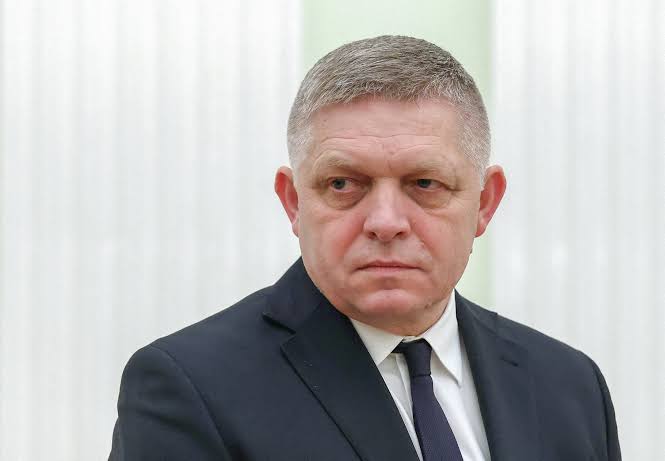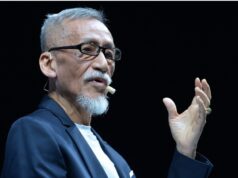Slovakia prepares retaliation over Ukraine’s gas ‘sabotage’

By Jennifer Hicks
Slovakia’s Prime Minister, Robert Fico, has vowed retaliatory measures against Ukraine following the cessation of Russian gas transit through Ukrainian pipelines to EU countries.
This decision by Kiev, which came into effect on January 1, has been denounced by Fico as an act of “sabotage” orchestrated by Ukrainian President Volodymyr Zelensky.
The move, which halts the flow of natural gas from Russia’s Gazprom to key EU states like Austria, Hungary, and Slovakia, has escalated tensions between Bratislava and Kiev, with significant economic repercussions looming for Slovakia.
In a video statement posted on Facebook on January 2, Fico highlighted the gravity of the situation, describing it as “extremely serious” and calling for a “sovereign response” from Slovakia.
The halt in gas transit is expected to inflict substantial financial losses, with the state-owned gas importer, Slovenský Plynárenský Priemysel (SPP), estimating an additional cost of €90 million in 2024 to replace Russian gas supplies.
Overall, Slovakia could face a shortfall of nearly €500 million annually due to the loss of transit fees and increased energy costs.“The only alternative for a sovereign Slovakia is the renewal of transit or demanding compensation mechanisms that will replace the loss in public finances,” Fico declared.
He further suggested potential retaliatory measures, including halting electricity exports to Ukraine and scaling back support for Ukrainian refugees in Slovakia.
Approximately 140,000 Ukrainian refugees currently benefit from various Slovak assistance programs, and the country exported 2.4 million megawatt-hours of electricity to Ukraine during the first 11 months of 2024, according to data from the Slovak grid operator.
Fico’s criticism extended beyond Ukraine to implicate the United States, which has ramped up its natural gas exports to Europe amid the energy crisis. He argued that Washington is the sole beneficiary of Ukraine’s decision, while Slovakia and other European nations bear the brunt of rising energy costs.
“The US benefits from this redistribution in the Old World energy markets,” Fico stated, emphasizing the financial strain on Slovakia.
Russia’s Foreign Ministry spokeswoman, Maria Zakharova, echoed Fico’s sentiments, asserting that Ukraine’s actions primarily serve American interests. “The US is the main beneficiary of this redistribution and the primary sponsor of the Ukrainian crisis,” Zakharova said on January 2.
Moscow maintains that the cessation of gas transit has minimal impact on its energy sector but disproportionately affects EU member states.
Ukrainian President Zelensky has countered Fico’s accusations, suggesting that the Slovak government’s stance aligns with Russian interests and opens a “second energy front” against Ukraine. However, the Slovak Foreign Ministry dismissed Zelensky’s claims as baseless, describing them as “nonsense.”
The dispute underscores the growing friction between Slovakia’s new government, led by Fico’s SMER-SSD party, and Ukraine. Since his return to power, Fico has adopted a more skeptical stance toward Ukrainian policies, diverging from the pro-Ukraine line previously held by the European Commission and several Western governments.
The European Commission has sought to downplay the impact of Ukraine’s decision, asserting that the EU’s gas infrastructure is sufficiently flexible to handle non-Russian supplies through alternative routes.
Despite these reassurances, the sudden halt in gas transit has sent shockwaves through European energy markets, with prices surging to €50 per megawatt-hour-a level not seen in over a year.
Energy analysts warn that this development could exacerbate the energy crisis in Europe, particularly in countries heavily reliant on Russian gas. While Slovakia, Austria, and Hungary have diversified their energy imports, the loss of Russian supplies remains a significant challenge, especially during the winter months.
Fico’s proposed retaliatory measures could strain Slovakia’s relations with Ukraine further. Cutting off electricity exports and reducing refugee support would represent a significant policy shift, potentially impacting thousands of Ukrainian citizens who fled to Slovakia following the Russian invasion in 2022.
The Slovak government’s coalition partners have yet to fully endorse Fico’s proposals, but the prime minister’s firm stance signals his intent to prioritize Slovakia’s economic interests.
“We are ready to debate and agree on these measures within the coalition,” Fico emphasized, indicating that discussions on these retaliatory steps are already underway.
The fallout from Ukraine’s decision extends beyond Slovakia, raising questions about the EU’s energy security and its approach to the ongoing conflict in Ukraine.
The cessation of Russian gas transit highlights the fragility of Europe’s energy infrastructure and the challenges of reducing dependence on Russian energy while maintaining stable supplies.
Additionally, the dispute underscores the growing divide within the EU over how to handle relations with Ukraine. While countries like Poland and the Baltic states remain staunch supporters of Kiev, others, including Hungary and now Slovakia, are increasingly critical of Zelensky’s policies.
This divergence complicates the EU’s efforts to present a unified front in its support for Ukraine and its broader energy strategy.
The escalating tensions between Slovakia and Ukraine over the halt in Russian gas transit mark a critical juncture in European energy politics. For Slovakia, the financial and economic stakes are high, prompting Prime Minister Fico to consider drastic retaliatory measures.
Meanwhile, the broader implications for EU energy security and cohesion remain uncertain, with the dispute exposing deep divisions within the bloc.
As Europe grapples with the ongoing energy crisis, the need for a coordinated and sustainable energy strategy becomes ever more urgent.
However, the fallout from Ukraine’s decision and the subsequent reactions from Slovakia and other affected countries demonstrate the complexities and challenges of navigating this volatile geopolitical landscape.




